Wills and estate planning are crucial legal processes that help individuals make informed decisions to protect their assets, provide financial security for loved ones, and ensure that their wishes are fulfilled after their passing. As a resident of British Columbia, understanding the specific requirements and regulations related to will-making and estate planning is essential to avoid potential complications, disputes, and unintended consequences. At Pathfinder Law, we are committed to providing clients across Abbotsford and British Columbia with educational, informative, and helpful content to ensure proper execution and administration of estate-related matters.
Our comprehensive guide to wills and estate planning in British Columbia will cover key considerations such as creating a legally binding will, managing and distributing assets, understanding legislation and regulations such as the Wills, Estates, and Succession Act (WESA), and the significance of efficient estate planning. Through a series of well-structured articles, we aim to equip clients with the knowledge and understanding needed to navigate the intricacies of estate planning and administration.
In British Columbia, estate planning is governed by a variety of provincial legislation, including the Wills, Estates and Succession Act, the Power of Attorney Act, and the Representation Agreement Act. Being aware of these laws’ implications on estate administration and planning is crucial to prevent disputes and ensure the proper management of your assets. With expert guidance and resources from Pathfinder Law, you can confidently navigate the complexities of estate planning, preserve your legacy, and safeguard your loved ones’ best interests.
Whether you are just beginning the process of estate planning or reviewing an existing plan, our in-depth guide to wills and estate planning in British Columbia will provide you with the necessary tools and insights to ensure the proper management, distribution, and administration of your estate. Trust the expertise of Pathfinder Law to guide you through the complexities of estate planning in British Columbia, safeguarding your assets and facilitating the well-being of your loved ones.
I. Creating a Legally Binding Will: Ensuring Your Wishes Are Fulfilled
Key Components of a Legal Will
A legally binding will should include the following fundamental elements:
- Clearly identify the will-maker and declare it to be their last will.
- Nominate an executor to administer the estate.
- Provide instructions for the distribution of the estate assets.
- Be signed and dated by the will-maker in the presence of two eligible witnesses.
The Importance of a Valid Will
Having a valid will in place ensures that your wishes regarding the distribution of your assets will be followed upon your death, prevents disputes among your beneficiaries, and helps minimize potential complications during estate administration.
II. Importance of Comprehensive Estate Planning: Protecting Assets and Loved Ones
The Role of Estate Planning
Estate planning is a crucial process that goes beyond simply creating a will. A comprehensive plan considers various aspects, such as appointing guardians for minors, designating powers of attorney, establishing trusts, and addressing tax implications.
Benefits of Effective Estate Planning
A well-prepared estate plan can provide numerous benefits, including:
- Ensuring financial security for your loved ones.
- Minimizing estate taxes and probate fees.
- Avoiding disputes among beneficiaries.
- Making provisions for incapacity.
III. Administration of Estates: Understanding the Executor’s Role and Responsibilities
Role of an Executor
The executor named in the will is responsible for carrying out the testator’s wishes, managing the estate, and distributing assets to beneficiaries. Their primary tasks include:
- Obtaining a grant of probate.
- Identifying, protecting, and valuing estate assets.
- Settling outstanding debts and liabilities.
- Distributing the remaining assets to the beneficiaries.
Choosing the Right Executor
Selecting a responsible, trustworthy, and competent executor is crucial for the proper administration of your estate. Additionally, consider appointing an alternate executor in case the initial choice is unable or unwilling to fulfill their duties.
IV. British Columbia’s Wills, Estates and Succession Act: Key Provisions and Implications
Overview of the WESA
The Wills, Estates and Succession Act (WESA) is British Columbia’s primary legislation governing wills and estate administration. The Act’s purpose includes clarifying, modernizing, and streamlining the province’s estate planning and administration processes.
Key Provisions Under the WESA
British Columbia residents should be aware of the following WESA provisions:
- Will Requirements: For a will to be legally valid, it must adhere to the formalities specified by the WESA, including the signature and witness requirements.
- Intestate Succession: The WESA outlines the distribution scheme for estates in the absence of a will, which prioritizes spouses and children.
- Creating and Revoking a Will: The Act provides guidance on how to create, amend, or revoke a will, ensuring that your estate plan remains current and reflects your wishes.
- Spousal Claims and Variations: Under WESA, spouses, and children have the right to contest a will if they believe the distribution of assets is unfair or inadequate.
Conclusion
Estate planning in British Columbia is an essential aspect of safeguarding one’s assets and ensuring the financial well-being of loved ones. By understanding the legal requirements related to wills, appreciating the importance of efficient estate planning, managing the administration of estates, and familiarizing oneself with British Columbia’s Wills, Estates and Succession Act, individuals can confidently plan for the future.
With Pathfinder Law’s comprehensive guide to wills and estate planning, clients can gain the knowledge and insight necessary to navigate the intricacies of estate planning in British Columbia effectively. By following best practices and staying up-to-date on relevant legislation and regulations, individuals can make informed decisions, protect their assets, and ensure the proper distribution and administration of their estates.
Do you need professional assistance with wills and estate planning in British Columbia? Contact Pathfinder Law today to discuss your unique needs and learn how our experienced estate lawyers in Abbotsford can help you navigate the complexities of estate planning, protect your assets, and provide peace of mind for you and your loved ones.











